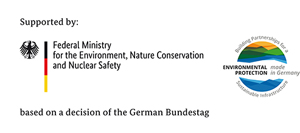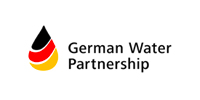BLUE PLANET Berlin Water Dialogues meets AquaNES

Wastewater treatment plant „Schönerlinde“ © Ulf Miehe/KWB
Inspired by Nature:
Combining Natural and Engineered Systems
in Water Management
on 9 April 2019, 9 am – 5 pm
at Berlin-Brandenburgische
Akademie der Wissenschaften,
entrance via Markgrafenstraße 38,
10117 Berlin
Water management requires intensive cooperation across sectors and disciplines. Yet, bringing oneself to thinking beyond the silo is a hard and continuous process; especially as the natural and economic environments become more and more unpredictable. BLUE PLANET Berlin Water Dialogues is the leading platform in Germany to bridge the gap between research and practice, across sectors. This year it partners with the EU-funded Horizon 2020 project AquaNES. The project demonstrated the feasibility and effectiveness of combined natural and engineered systems for water treatment systems (cNES).
During the BLUE PLANET Berlin Water Dialogues conference, AquaNES presents the innovations that emerged from the collaboration of utilities, industry and academia. A panel discussion with representatives from water utilities and the private sector beyond the AquaNES network allow for a multi-faceted exchange on water management challenges, including those that crystallized from past BLUE PLANET Berlin Water Dialogues. Representatives from the private and public sectors, academia, non-governmental organizations, and other interested stakeholders come together for this unique conference format.
Preliminary Program____________________________________________________________
| 8:30 | Registration |
| 09:00 | Welcoming Remarks Thomas Stratenwerth, Head of Division, Fundamental, International and European Aspects of Water Management, Federals Ministry for the Environment, Nature Conservation and Nuclear Safety |
| 09:20 | Jörg Simon, Chairman of the Board, Berliner Wasserbetriebe |
| 09:30 | Keynote Address Leaving no one behind in access to water and sanitation – The potential of nature-based solutions Stefan Uhlenbrook, Coordinator, UNESCO World Water Assessment Programme (UNESCO WWAP) & Director, UNESCO Programme Office on Global Water Assessment  |
| 10:00 | Introducing Combined Natural and Engineered Treatment Processes (cNES) Addressing water management challenges with cNES Thomas Wintgens, AquaNES Project Coordinator, Professor at FHNW School of Life Sciences, Head of Environmental Technology Group  |
| 10:30 | Coffee Break & Networking |
| From Research into Practice – Lectures followed by Q/A: | |
| 11:00 | Ozonation combined with natural filtration processes – water quality gains Regina Gnirss, Berliner Wasserbetriebe |
| 11:30 | Flexible use of modified retention soil filters to treat wastewater treatment plant effluent and combined sewer overflow Andrea Brunsch, Erftverband |
| 12:00 | Tailored ICT tool for optimised operation of a managed aquifer recharge site Axel Aurouet, Geohyd Antea Group |
| 12:30 | Realising combined natural engineered systems (cNES) – Insights from public perceptions and governance Heather Smith, Cranfield University |
| 13:00 | Lunch |
| AquaNES Responses to Water Management Challenges: International demonstration cases for combined natural and engineered systems |
| 13:45 | Parallel Dialogue Series I
|
||||
| 14:15 | Rotation | ||||
| 14:30
|
Parallel Dialogue Series II
|
||||
|
|
Discover more!
You can learn more about the projects in the Gallery. |
||||
| 15:00 | Coffee Break | ||||
| From Research into Practice – Panel Discussion Followed by Q&A |
|||||
|
15:30 |
Made to last? Overcoming challenges for the implementation of cNES by research, demonstration Sebastian Piltz, Acting Managing Director, Isle Utilities GmbH
|
||||
| Inspirational lecture | |||||
| 16:30 | Combining natural and engineered systems for Water-wise Cities Corinne Trommsdorff, Head, Water-Wise Cities Initiative, International Water Association  |
||||
| 17:00 | Farewell |
Participation is free of charge. Please not that registration is now closed. You register for the waiting list here or send an email to mail@blueplanetberlin.de.
Follow us on Twitter.
Background
The BLUE PLANET Berlin Water Dialogues is a series of events initiated as a platform for dialogue in 2011 by the German Federal Ministry for the Environment, Nature Conservation and Nuclear Safety and the Berlin Senate Department for Economics, Energy and Public Enterprises. Participants from business, research, politics and non-governmental organisations are encouraged to actively participate in the exchange of knowledge, ideas, concepts and experience on cutting-edge topics and issues in international water management and to discuss water management challenges in a solution-oriented manner. The participatory approach thus brings together proven experts and a broad spectrum of different stakeholders of the international water industry and promotes their mutual exchange of knowledge as well as goal- and action-oriented cooperation. In addition, the diligent selection of topics promotes the nexus between water, food and energy management.
Learn more about BLUE PLANET Berlin Water Dialogues 2018.
Funding authorities


Project lead
![]()
Project office



